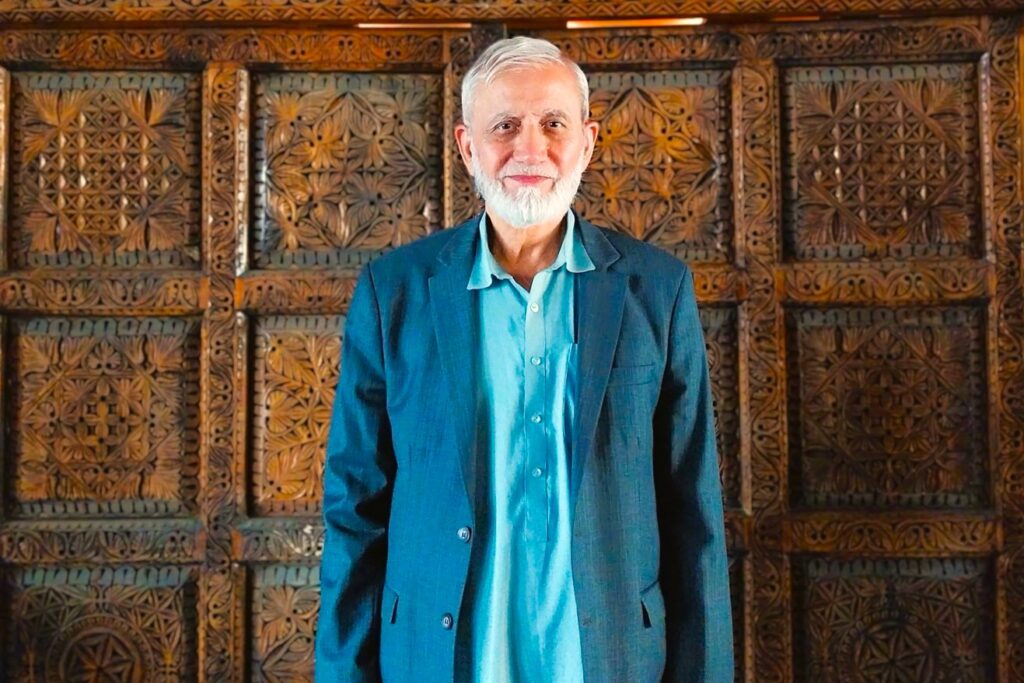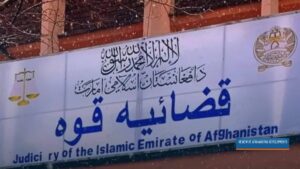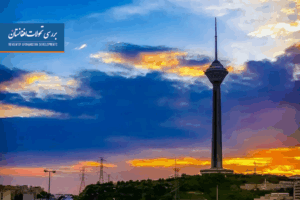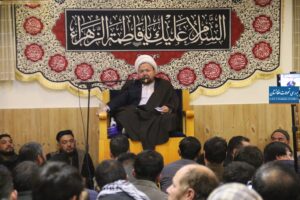Review of Afghanistan developments
Throughout the timeline of modern Afghan literature, certain individuals have significantly contributed not only to poetry and prose but also to the establishment of national culture and identity. One such notable individual was Saleh Mohammad Khaliq, a diligent and modest poet, writer, and researcher hailing from Balkh province. He held the conviction that a poet ought to serve as the guardian of his nation’s historical memory. He consistently focused on the Persian language, national identity, and the advancement of critical thinking.
Khaliq was born in Mazar-e-Sharif in 1955 and pursued his education in Persian literature at Balkh University, subsequently obtaining his master’s degree from Payam-e-Noor University in Iran. He initiated his literary endeavors in the 1970s while employed at a chemical fertilizer factory, quickly establishing himself as a prominent cultural figure.
The challenging social and political circumstances in Afghanistan during the subsequent decades prompted him to engage in a type of cultural resistance. In 1980, he established the Balkh Writers’ Association and held the position of president until his passing. This association evolved into one of the most dynamic organizations in northern Afghanistan.
Khaliq bequeathed significant cultural, literary, and research contributions throughout his esteemed life. He passed away on 29th of July 2025, reportedly due to a traffic accident in Mazar-e-Sharif. The news of Khaliq’s demise elicited extensive responses from the cultural and literary circles of Afghanistan and its neighboring nations, where he was honored with titles like “Balkh researcher” and “guardian of national memory.” His cultural and intellectual heritage is destined to motivate future generations.
Literary activity and poetic style of Saleh Mohammad Khaliq
Saleh Mohammad Khaliq’s poetic style represents a fusion of traditional and contemporary elements. By staying true to the classical foundations of Persian poetry, he successfully developed a fresh, melodic, and visual form of expression. His work is marked by a deep and inquisitive perspective on content, with significant themes including social issues, critical language, and the interplay of poetry with history and identity. Additionally, the geographical and cultural imagery of Balkh stands out as a key aspect of Khaliq’s poetry.
In Khaliq’s poetry, Balkh transcends its identity as a mere city, evolving into a symbol of history, civilization, and a yearning for what has been lost. In works like “In Bamyan, the Heart of Mine” and “On the Silk Road,” Khaliq reinterprets Balkh through a rich tapestry of imagery and metaphor.
The philosophical and romantic themes can be identified as another defining feature of Khaliq’s poetry. He portrays love as a transformative power of existence through a mystical lens. In his works, Khaliq employs terms like “sun,” “heart,” “mountain,” “river,” and “star” to guide the reader’s thoughts towards transcendent ideas.
The essence and hallmark of Khaliq’s poetry lie in collective resistance and pain. Collections like “The Obituary of the Red Rose” and “From Fresh Wounds” vividly reflect the social suffering and the impact of war in Afghanistan.
Khalik’s poetry is characterized by a refined and noble language that remains accessible to the general populace. He endeavored to capture the voice of the people’s suffering, migration, injustices, and cultural defiance within his verses. His work can be viewed as a continuation of Afghanistan’s intellectual tradition of resistance poetry, which particularly flourished after the 1960s amid the backdrop of migration and political turmoil. The themes present in his poems include homeland, love, resistance, Balkhi identity, and social hardship.
To date, he has published over twelve poetry collections, among which the most significant include: Greetings to the Sun, Tall Green Pine, From Blue Peaks, A Starry Sky, The Last Frontier of Infinity, The Excitement of the Soul, Words of Love, In the Famine of Affection, and to the Path of the Wanderers.
Khaliq’s research activities and works
One of the lesser-known yet significant facets of Saleh Mohammad Khaliq is his considerable engagement in research activities. He held the belief that reconstructing identity is unattainable without a thorough comprehension of local history and culture. Consequently, Khaliq focused his research on the history of Balkh literature, journalism, ancient monuments, folklore, and tourism.
His research encompasses over several titles, with the most significant being: Aryan Celebrations (Balkh, 1991), Eagle (Tehran, 1998), Cry for Freedom (A Perspective on the Poems of Allama Seyyed Ismail Balkhi) (Balkh, 2005), History of Balkh Literature from the Earliest Times to the Early 21st Century (Kabul, 2008), History of Balkh Journalism (Tehran, 2010), Ahang Kiani (A Selection of Poems by Poets in Praise of the Kian Valley) (Kabul, 2013), Mirror in Mirror (Criticism and Opinion) (Kabul, 2015), Ancient Sites and Historical Monuments of Balkh (Tehran, 2015), The Influence of the Shahnameh on the Poetry of Afghan Resistance (Tehran, 2016), Signs of Bukhdi’s Past Glory (Balkh, 2018), Tourist Attractions of Balkh (Kabul, 2020), Messenger of Light and Seal (Balkh, 2019).
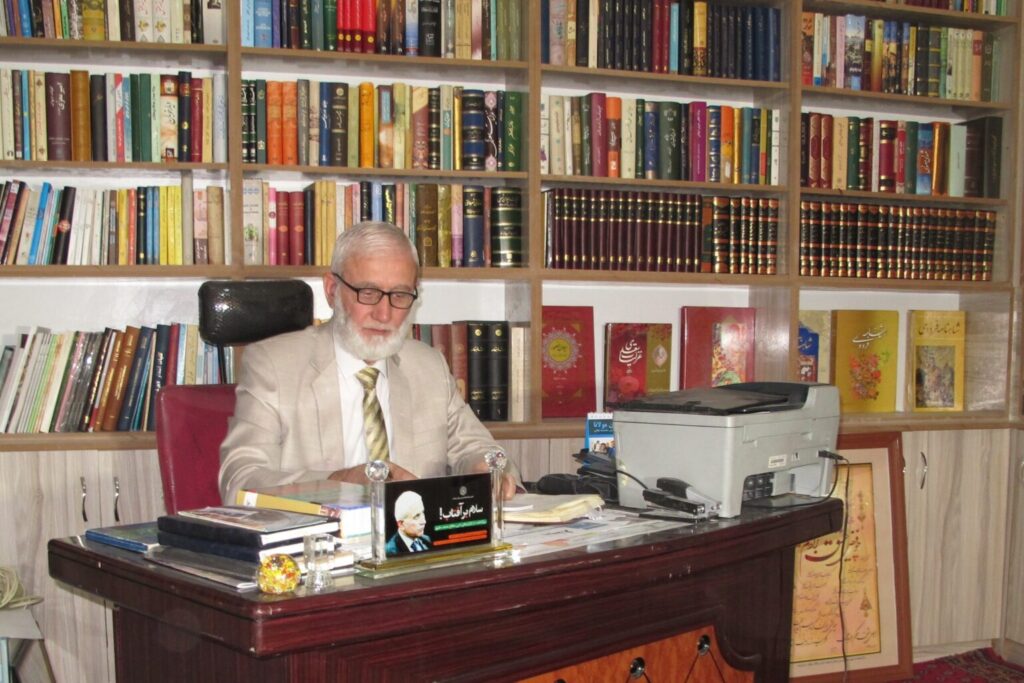
Khaliq’s Creative cultural and media activity
From 2004 to 2020, Saleh Mohammad Khaliq served as the head of the Information and Culture Department in Balkh Province. Throughout this time, distinctive cultural initiatives were carried out in Balkh, including the establishment of public libraries, the support of art associations, the restoration of historical cultural sites, and proactive engagement with both local and international media.
Khaliq served as the managing director and editor for various publications, including Umm al-Bilad, Bidar, and Kian. He fostered an environment conducive to cultural dialogue, social critique, and the enhancement of public awareness within these media platforms.
Saleh Mohammad Khaliq was not merely a cultural icon in Afghanistan; he also showcased Afghan culture internationally by attending conferences in Iran, Tajikistan, India, France, Poland, Turkey, and the United States. He was affiliated with several cultural organizations, such as the Maulana Center, Nasir Khosrow Center, the Peywand Association, and the Amir Ali Shir Navai Association.
His involvement in cultural discussions with Persian-speaking nations exemplifies effective cultural diplomacy executed by a native scholar.
Related articles
Aisha Durrani: A look at the poetry of An Afghan Woman
Conclusion
Saleh Mohammad Khaliq stands as a prominent figure in the modern cultural history of Afghanistan. Merging art, research, cultural management, and social responsibility, he exemplifies a unique model of a native intellectual. His literary and research contributions serve not only as a valuable repository of language and culture but also as a foundation for reevaluating Afghanistan’s historical identity. Analyzing and reading his life and work will facilitate the younger generation’s quest to restore its cultural identity.
Follow us on social Media


